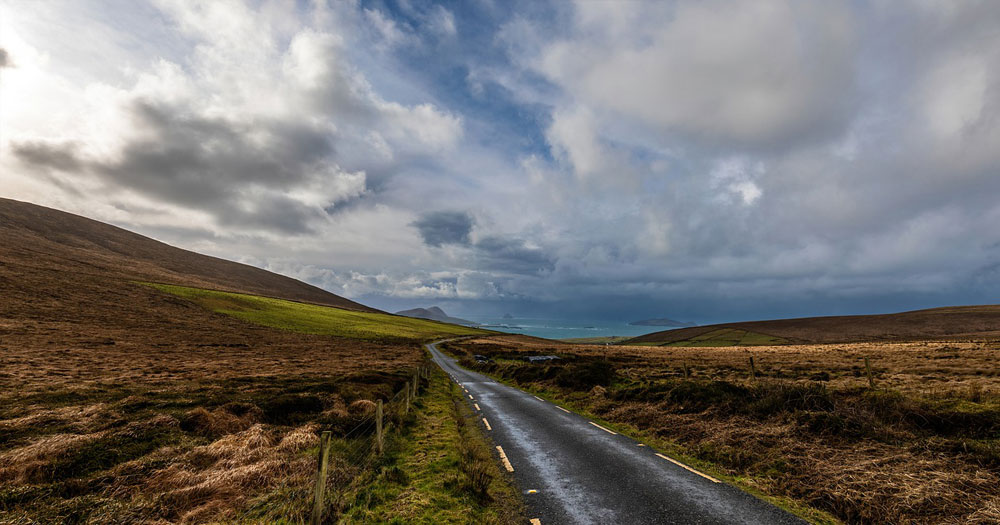Kerry native and Trans woman Joanne-Mary was the first guest to speak with Joe Duffy about her shocking experiences as a member of the LGBTQ+ community in modern-day rural Ireland.
“I’m on my journey now, eight years,” she told Duffy and his listeners. “It’s the best thing that I ever did for myself, come out and become my true self.”
But she admits that it was very difficult for her to become her true self against the backdrop of rural Ireland, where she faced continued hostility, bigotry and transphobia.
“I was spat at, just minding my own business one day… just walking along the town, didn’t even know who the person was,” she told an appalled Joe Duffy. “I was in such shock… I cried and I said ‘is this the way life is going to be for me?'”
Joanne-Mary has also faced verbal abuse in her local shop, public and intentional misgendering and “disgusting talk that left [her] in a bad way”.
“I just couldn’t get over it, how any human being could be so horrible and so hurtful,” she said, adding that to this day she feels discomfort in some of the larger rural Irish towns. “Sometimes I have to force myself, it’s like, you don’t know what’s around the corner.”
Sadly, Joanne-Mary’s experiences are not as unique as one might think. Three other callers, Rebecca, Darragh and Patrick all shared similar challenges as members of the LGBTQ+ community in Ireland.
Rebecca Tallon de Havilland, who happens to be a former GCN cover star, said the language that’s still used around Trans people “infuriates” her, with many still referring to Trans women as men.
“Until society changes that language around us – sometimes it feels like we’re fighting a losing battle because I have to tell people … well, in actual fact, I had to pretend to be a boy; I’ve never had to pretend to be a girl, you know?”
Rebecca admits that Joanne-Mary is her hero for being an out and proud Trans woman living in the county, as Rebecca finds that she’s safer and “more anonymous” in a bigger city like Dublin.
Darragh, who hales from rural Cork, has been through a “transitioning journey” of his own as a member of the LGBTQ+ community.
“I always knew I was different from a very very young age,” he said. “I was always afraid to tell my mum… I didn’t know how she’d react.”
Fortunately, Darragh’s mother was very accepting when he finally told her that he is Trans, but he has also had experiences with family who do not understand his gender identity.
“Don’t ever give up,” he said to Joanne-Mary. “You are who you are; just be you.”
He went on to compare rural Ireland with Irish cities, post-marriage equality referendum.
“For people who are still considered in the minority groups, like those who are Transgender male or Transgender female, not a lot has changed. Yes, in the city, as Rebecca said, you can become a little bit more anonymous. But in the rural, in the towns, it’s not as easy to be you. You’re almost like you’re pretending to be someone who you’re not.”
Patrick also discussed his experience of growing up as an LGBTQ+ person in rural Ireland. “In those days, Joe, there was no support or anything else. We were on our own basically.”
Patrick, a gay man, had to leave school when he was 14 because he “couldn’t cope” with the hurtful things his classmate used to say to him.
Although he considers himself to be very lucky for having met his partner over 40 years ago, he says, “I do think for certain young people, male and female, it’s a very difficult thing still. They’re worried about their family, they’re worried about what their friends think of them. There’s a lot of that still around, you know?”
© 2022 GCN (Gay Community News). All rights reserved.
Support GCN
GCN is a free, vital resource for Ireland’s LGBTQ+ community since 1988.
GCN is a trading name of National LGBT Federation CLG, a registered charity - Charity Number: 20034580.
GCN relies on the generous support of the community and allies to sustain the crucial work that we do. Producing GCN is costly, and, in an industry which has been hugely impacted by rising costs, we need your support to help sustain and grow this vital resource.
Supporting GCN for as little as €1.99 per month will help us continue our work as Ireland’s free, independent LGBTQ+ media.
